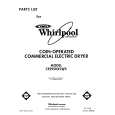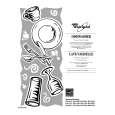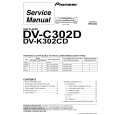|
No hay comentarios de productos.
BROILING . .
TIPS
. Do not preheat when broiling. For even broiling on both sides start the
food on a cold pan. Allow slfghtfy more than half the cooking time for the first side then turn the food using tongs. If you pferce the meat wilh a fork, the juices will escape When broiling frozen meat, use one rack position lower than shown In the chart and up to 1% times the broflfng time. Tnm the outer layer of fat from steaks and chops. Slit the fatty edges to keep the meat from curling. Food placed too close to the broiler may spatter, smoke or catch fire. For maximum fuclness, salt the flrst side fust before turntng the meat. Salt the second side lust before serving. Brush chicken and fish wfth butter several limes as they brofl. When broflfng fish. grease the gnd to prevent sticking. Never leave a solled broiler pan in the range. Grease In the pan may smoke or burn the next tfme the oven IS used. See page 11 for lips on cleaning the broiler pan and grid. Be sure you know how to put out a grease fire. See page 4.
. .
. Always put the food being broiled on the proper rack (see chart at nght). . . . .
POSITIONING
BROILER
PAN
To open the broiler compartment, grw the handle and pull the door toward you. AHer placfng food on the broiler pan, shde the pan into the proper rack posftion. Be sure the sump (grease well) in the pan is to the front of the range. See the chart (at nght) for recommended rack position and cookfng time. The closer the food is to the brofler burner the faster the meat browns on the outside, yet stays red to pink in the center. Moving the meat farther away from the burner lets the meat cook to the center while browning outside.
This chart is a general guide. The size. weight, thickness and staninc temperature of the food! as well as your own personal preference, WI affect the desired cookmg.
10
|





